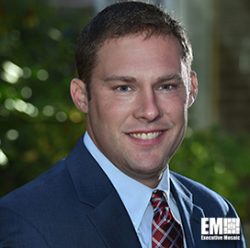“The goal of the government contracting world should be to provide goods and services to the federal government in the most convenient, cheapest, effective manner…That is a noble goal…”

ExecutiveBiz: Please tell us about your background and previous experience and how it prepared you for your current position with Merlin.
Jones Tallent: I’ve been fortunate to have a number of different jobs with different varieties of experiences throughout my career, though all were definitely in the finance and accounting realm. I’ve been able to take things from each of the opportunities and the jobs that I’ve had and learn from them.
I was an intern at Ernst and Young and I went straight to working for them in public accounting after grad school. Public accounting is a great teaching ground for folks that want to have a career in finance, because you learn very quickly the work ethic that is expected in the business world. You also get to see a lot of different types of clients in a lot more areas in the business cycle.
I had a few clients in the government industry which is where I got my introduction to government contracting. We did a job where we were with government service providers, so I learned about the key metrics that they are looking into day-to-day.: how to judge government contracts, the backlog reporting and all the things that are playing into what I do now. I’ve also had other jobs where I was in charge of internal controls and where I was running internal audits for a company with a lot of retail outlets overseas.
I’ve been able to take one or two pieces from what I’ve done and apply that to where I am now at Merlin. I do all of those little things that I used to specialize in at the other places.
ExecutiveBiz: How does Merlin interact with the federal department? What agencies do you serve within the federal marketplace?
Jones Tallent: We serve a lot of agencies but our focus is government health care. The majority of the work we do right now is with the Veterans Administration and Health and Human Services, where we provide cybersecurity and IT-related goods and services.
ExecutiveBiz: Through working with the federal government, what kind of obstacles have you seen government contractors face? How have things changed over time? What things would you improve?
Jones Tallent: Federal contracting as a whole is a very convoluted business. Originally, government contracting was the solution to the problem of the government getting too large. They said it would be more efficient if we had product companies come in and do the work, and the government got the best price.
It evolved from that the government always gets the best price, to we also want to meet certain socio-economic thresholds. The government wants to award some contracts to service-disabled veteran-owned companies, to Alaska-native-owned companies, to small businesses. What has happened is that it’s difficult to tell what the government is trying to do or what the government wants, and there are a lot of companies fighting to be the one to deliver the goods and services to them. The largest obstacle is the federal government itself, the turnover and the lack of cohesion, the bureaucracy.
Another difficulty is that theoretically every four years you can be turning over the top positions in all these agencies. The directors are appointees by the government. The mission tends to change, or the way we go about trying to execute the mission tends to change. Contractors have to be very nimble in what kind of service offerings they provide, as well as who they work with, because things can change very quickly.
The goal of the government contracting world should be to provide goods and services to the federal government in the most convenient, cheapest, effective manner. That is a noble goal for government contractors to work towards. We have had a lot of contracts with companies making critical things that are very significant for securing American interests or building battlefield solution. Generally, when you are contracting for the government you are doing something that theoretically should be helping your fellow citizens, which is something that companies take a lot of pride in.
It can be frustrating when you’re not able to provide that in the most effective way possible because of the roadblocks — but at the end of the day, Merlin is responsible for securing and monitoring the network for both Veterans Administration as well as large portions of Health and Human Services, and we are proud of that.




